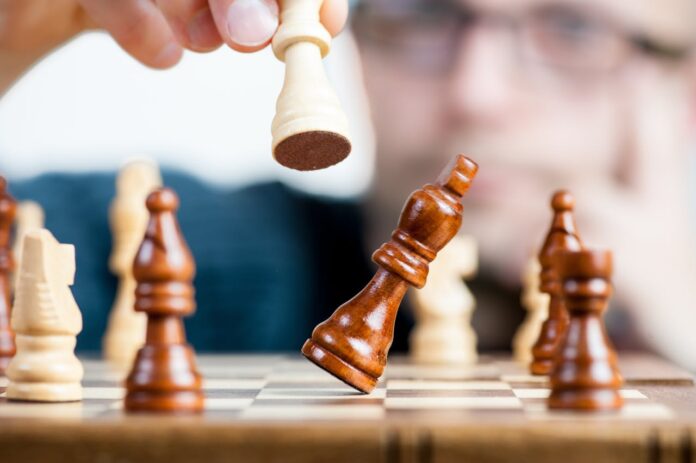Chess, often regarded as a game of intellect and strategy, has long been a subject of debate when it comes to its classification as a sport. While some may argue that it lacks the physical exertion typically associated with sports, the mental acuity, discipline, and competitive nature of chess make a compelling case for its recognition as a sport.
Chess: A Game of Skill and Strategy
Chess is a timeless game that transcends boundaries, cultures, and generations. It is a game that requires intense concentration, strategic planning, and the ability to anticipate and counter your opponent’s moves. The mental agility and analytical thinking demanded by chess are akin to the skills required in traditional sports like football or basketball. Players must possess a deep understanding of tactics, openings, and endgames, honing their skills through practice and study.
The Competitive Nature of Chess
In the world of competitive chess, players engage in intense battles of wits and strategy. Tournaments bring together the best minds in the game to compete for titles, rankings, and prestige. The pressure of timed moves, the psychological warfare of bluffing and feints, and the thrill of outsmarting an opponent all contribute to the competitive intensity of chess. Just like in any other sport, players train rigorously, analyze their games, and strive for continuous improvement to stay at the top of their game.
Chess and Physical Fitness
While chess may not involve physical exertion in the traditional sense, it does require a high level of mental fitness and stamina. Long hours of concentration, decision-making under pressure, and the mental endurance needed to play multiple games in a day all contribute to the mental demands of chess. Studies have shown that top chess players have resting heart rates similar to athletes, indicating the mental strain and focus required during gameplay. Chess players often follow strict physical and mental training routines to enhance their performance, highlighting the sport-like dedication and discipline involved.
Recognition and Evolution of Chess as a Sport
Over the years, there has been a growing recognition of chess as a sport by various international sporting bodies. The World Chess Federation (FIDE) governs the rules and regulations of competitive chess, organizing world championships, Olympiads, and other prestigious events. Chess has been included in multi-sport events like the Asian Games and the World Mind Sports Games, further solidifying its status as a sport. The mental prowess, strategic thinking, and competitive spirit displayed by chess players have garnered respect and admiration from athletes and spectators alike.
How Has Chess Been Recognized As A Sport
Chess has been recognized as a sport through various avenues:
Physical Demands
Elite chess players are required to be in excellent physical shape due to the long hours of intense concentration during games, lasting up to 7, 8, or even 9 hours.
Competitiveness
Chess is highly competitive, with players driven by the desire to win and the tense experience of facing fierce opponents across the board.
Skill Requirement¬
Elite chess players spend a lifetime honing their craft, practicing openings, studying endgames, and developing critical thinking skills, similar to the dedication of professional athletes.
Sportsmanship
Chess players adhere to etiquette and sportsmanship rules, such as shaking hands before and after games, reflecting respect for opponents and the game itself.
Recognition by International Bodies
The International Olympic Committee (IOC) has acknowledged chess as a sport due to its sport-like properties and mental challenges.
Universal Appeal
With approximately 600 million people playing chess worldwide, it serves as a common ground for people of different backgrounds, fostering international communication and camaraderie akin to traditional sports.
Mind Sport Classification
Chess is considered a mind sport by emphasizing mental exercise over physical exertion, challenging individuals intellectually and developing critical thinking skills.
National Fervor
Chess has inspired national pride and fervor, similar to traditional sports events like the Olympics or World Cup, with competitions like Fischer vs. Spassky in 1972 capturing global attention.
Doping Controls¬
Major chess events implement doping controls similar to other sports, ensuring fair play and integrity within the game.
Competitive Structure¬
Chess tournaments are structured with points awarded for wins and draws, emphasizing competition and strategic gameplay akin to traditional sports.
Chess Tournaments That Are Recognized As Sports Events In UK
Some examples of chess tournaments that are recognized as sports events in the UK include:
The Open Championship Final: Scheduled from 2 to 10 October, this tournament is a significant event in the UK chess calendar
Junior Finals: Taking place on 2-3 October, this tournament showcases young talent and contributes to the development of chess at a junior level in the UK
Senior Championships Final:Scheduled for 4-10 October, this tournament highlights the competitive spirit and skill of senior chess players in the UK
Women’s Championship Final:Set for 11-17 October, this tournament focuses on promoting women’s participation and excellence in chess within the UK.
Final Words
Chess is undeniably a sport that challenges the mind, tests strategic thinking, and fosters a competitive spirit. While it may not involve physical athleticism, the mental acumen, discipline, and dedication required to excel in chess are on par with traditional sports. As the game continues to evolve and gain recognition on the global stage, the debate over whether chess is a sport becomes less about physicality and more about the sheer brilliance and skill displayed by its players. Chess is not just a game; it is a sport that celebrates the power of the mind and the thrill of strategic competition.
Read More: The Most Popular Sport in UK



